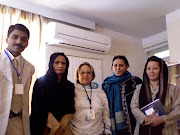``Failed state'' is a term applied frequently to Afghanistan and is often deemed the cause for why terrorists gained such influence there. But a country does not fail of its own volition, nor is it weakened by unknown causes. A country fails, when it fails, for definite, identifiable reasons. These must be addressed if Afghanistan is to be revived.
Twenty years of invasion, civil war, and drought have left Afghanistan's institutions in ruin. Millions of Afghans huddle in refugee camps or are displaced from their homes. Land-mines defile the countryside. Millions are sick and poor; many live at starvation levels. For these and many other reasons, rebuilding Afghanistan's economy will require not only economic reconstruction but an effort to reinvent the country's political and cultural institutions. Such a massive effort will be doomed to failure, however, if Afghanistan's neighbors intervene in ways that promote economic upheaval all over again.
Afghanistan is no place for quick fixes. Rebuilding the country cannot be done cheaply. Any thought that the anti-terror coalition will be able to bail out fast (as the West did when it abandoned Afghanistan to its fate after the Soviet withdrawal ten years ago) should be forgotten. The West must stick with Afghanistan until its reconstruction is established. Otherwise, it runs the risk of renewed chaos and violence, but this time in a more destabilized region, as Pakistan's current problems demonstrate.
Three problems are of immediate concern, the most important being feeding the Afghan people - both within the country and in refugee camps outside Afghanistan. Humanitarian aid is being delivered, but a distribution system safe from the predations of Afghanistan's warlords needs to be built. Indeed, the warlords have been given too big a say in distributing aid already, and it may be hard to strip them of this power. But stripped they must be.
The second problem involves relocating Afghan refugees now living in Pakistan and Iran, as well as those displaced within Afghanistan. To achieve this goal, the agricultural economy must be revived in order to revive this industry, providing jobs and food for people. A massive impediment here is the millions of mines left over from the Soviet invasion that must be removed.
The West has a big incentive to be generous to Afghanistan's rural poor. Starving farmers, if unassisted, may return to cultivating a very reliable cash crop: the opium poppy, long a staple of the warlord economy. Eliminating it will not only help farmers and the West as it tries to curtail heroin use, but also Afghanistan's infant government as it struggles to assert its national authority against the warlords. A bankrupt warlord, after all, cannot buy weapons or bribe people to maintain their loyalty.
Major infrastructure investments will also be needed if the economy is to be revived. Housing, particularly for returning refugees, will need to be constructed fast. Cities such as Kabul, Mazar, Herat and others will need to be rebuilt as centers of economic and cultural life. Village housing must be provided at a massive level.
Roads, airports and communications systems must also be revitalized if trade is to be restored. The educational system needs to be rebuilt almost from scratch, and with so many women anxious to return to teaching, a revived educational system will also help Afghanistan's democratic politicians gain a powerful lobby of workers. Particular attention should be given to elementary schools and libraries outside of cities.
Afghanistan poses particular difficulties in reconstruction, as it is not a society with a strong political center. Planners should take advantage of the country's decentralized nature and emphasize private sector participation in reconstruction. A decentralized system will respond better to local needs and avoid an over-bureaucratic public sector. But autonomous economic regions should be avoided as a threat to Afghan national unity because they would play into the hands of the warlords. Moreover, poorer regions would do badly in such a system.
In the long run, Afghanistan has resources that can be exploited. There is the potential for oil and gas exploration, and of mining iron ore and precious metals. These activities should be explored in a framework of economic development across Central Asia. Afghanistan, indeed, must be integrated into the regional pipeline and other development schemes. Afghans can contribute in a tangible way here by reopening the North-South route connecting the resource rich economies of Central Asia to densely populated India and Pakistan.
None of this will be possible unless Afghanistan's young males are disarmed and given productive work. Essential here, is to attract expatriate Afghans with skills and professional achievements to help in rebuilding the country by establishing small firms that will suck up the unemployed. Expatriate involvement will also likely support the rights of women to participate fully and legally in economic and political life, as was the case before 1978.
Finally, donor countries must apply the lessons learned in restoring the war-ravaged states of the former Yugoslavia. Grants and planning must be coordinated, and the consent of Afghanistan's neighboring countries assured. If the latter are ignored, regional interests can incite chaos once again. An international conference on Afghanistan should be called by the US and held under UN auspices. It must affirm not only Afghanistan's territorial integrity, but insure that donor commitments meet the scale of the job and that these promises are kept.
A decade ago, the West turned its back on Afghanistan and chaos ensued. To abandon the country again would be criminal folly.
Friday, April 09, 2010
Subscribe to:
Post Comments (Atom)












No comments:
Post a Comment